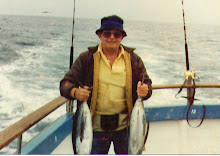History can take some strange twists, and most people would be startled to learn that in 1860 California was almost split into two states, with the southern half called "Colorado". Whoa! Wait a minute. What about the real state of Colorado?
Prior to becoming a state, Colorado was part of three different territories: Utah, Nebraska, and Kansas. For a few years it was a quasi-independent entity known as Jefferson Territory. It became the state of Colorado in 1876.
California, meanwhile, was going undergoing a minor revolution in that San Francisco and Sacramento were the dominant cities in the state and southern California felt that the north was sucking up taxes from the south and not giving much in return (exactly the opposite of the feelings today with the north furious about Los Angeles sucking all the water out of the high Sierras). In 1859, The Sacramento legislature passed a bill to split California in two, with the lower half to be a new state called Colorado. As the United States Constitution requires, the bill was then sent to the nation's capitol for congressional approval.
In Washington, however, the slavery issue was drawing southern secession closer and closer. The abolitionists felt that since southern California was sympathetic toward the slave holding states, approving the bill would add more pro-slavery votes in congress. In 1860, the abolitionists succeeded in killing the bill, and so we have things as they are today.
It's hard to imagine Colorado being called anything else than what it is. To me, the very name calls up images of the majestic, snow covered peaks of the Rockies. Incidentally, forty-two of the peaks are at least 14,000 feet high. California does not have nearly that many in the Sierras, but one, Mt. Whitney, towers a few feet higher than any of the Colorado peaks and so is the highest point in the contiguous United States.
Intra-state conflicts were not limited to California. Nebraska became a state in 1867 and featured its own north-south dispute. Originally, Omaha (north of the Platte River) was named the state capitol. The population south of the Platte rose in uproar and threatened to join the state of Kansas. Finally, the capitol was moved from Omaha to Lincoln (south of the Platte), and we have the state as it is today.
At some point I hope to have some interesting stuff about the Platte River. It's size cannot compare to the Mississippi, the Columbia, the Colorado or the Hudson, but its importance in the opening up of America is huge. More on that later.
Oh, I went fishing again this morning. The score now stands at: fish=200, me=0. It will get better, I guarantee you.
Sunday, July 22, 2007
Subscribe to:
Post Comments (Atom)




No comments:
Post a Comment